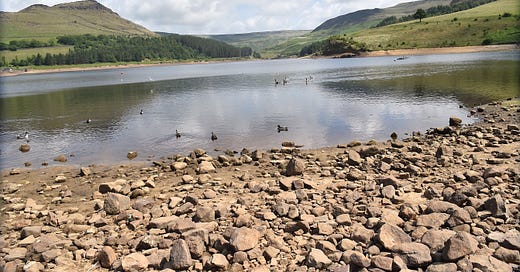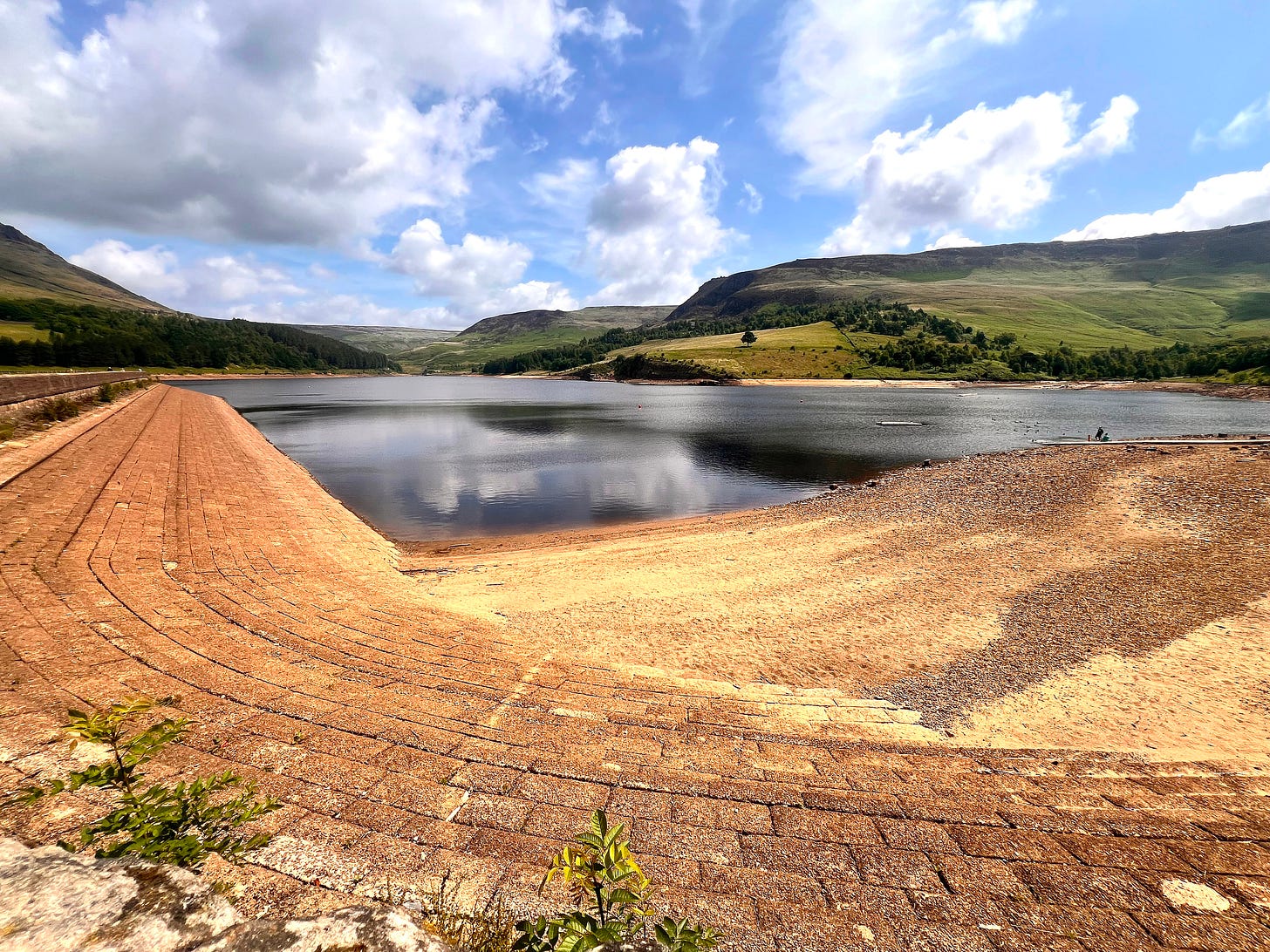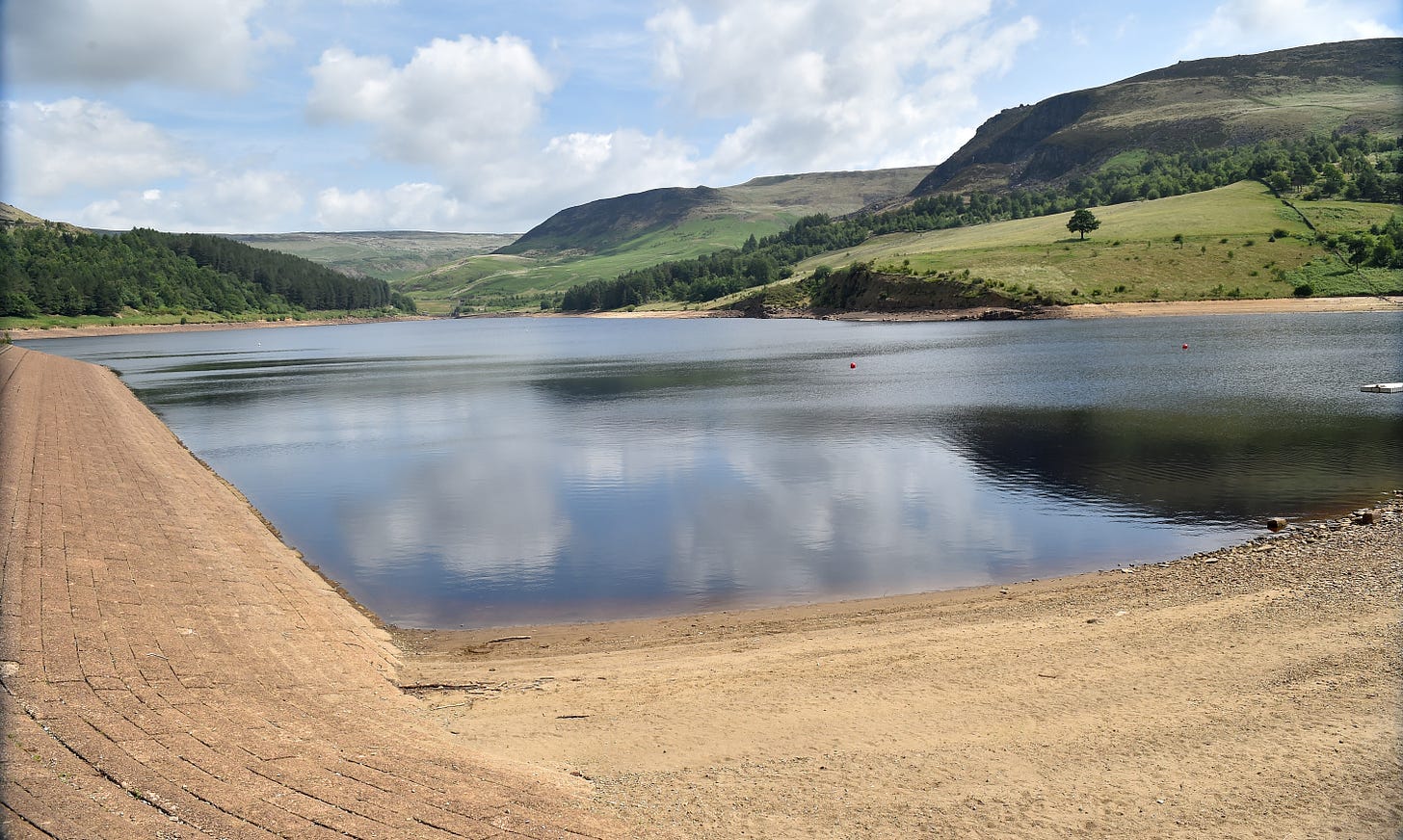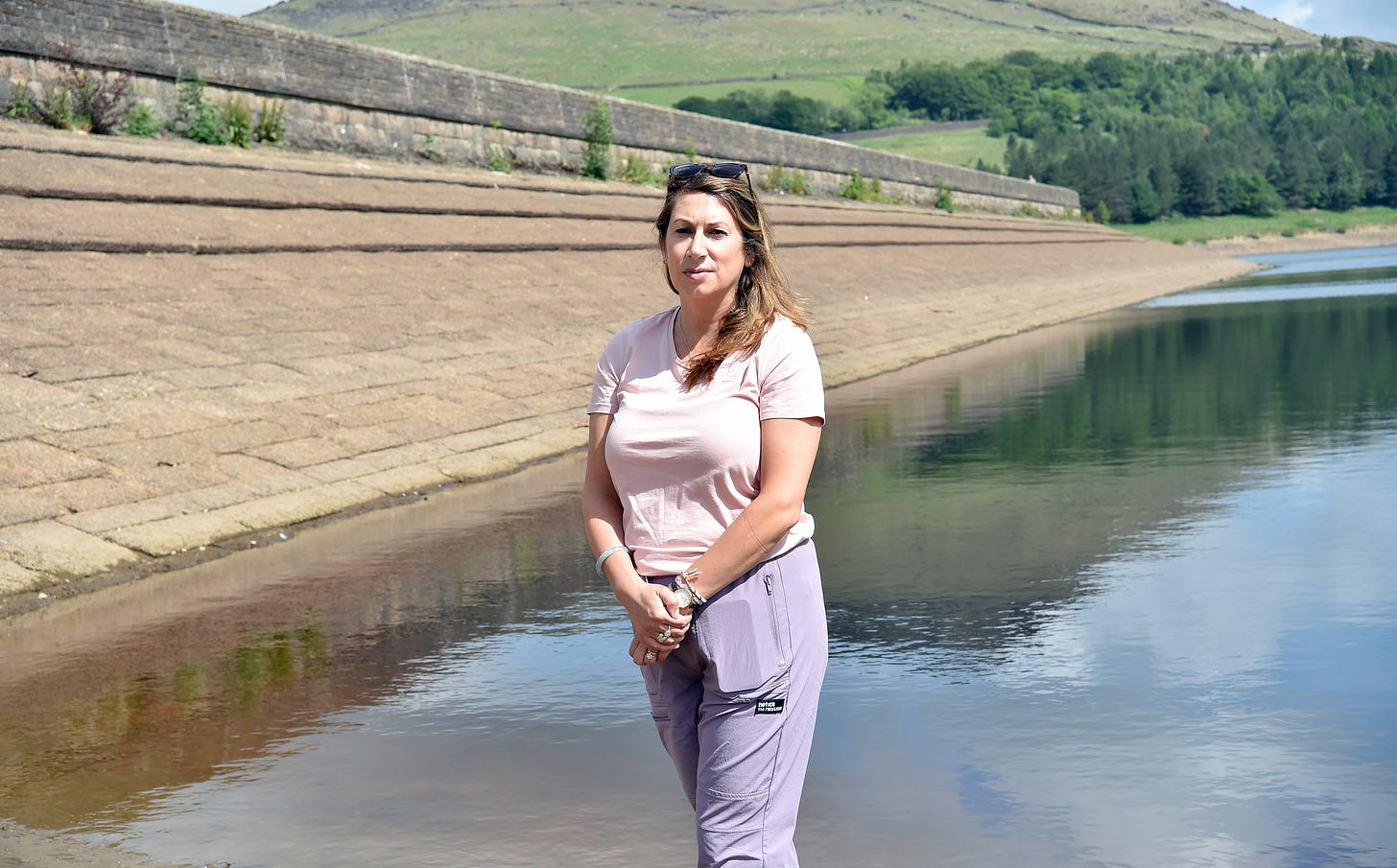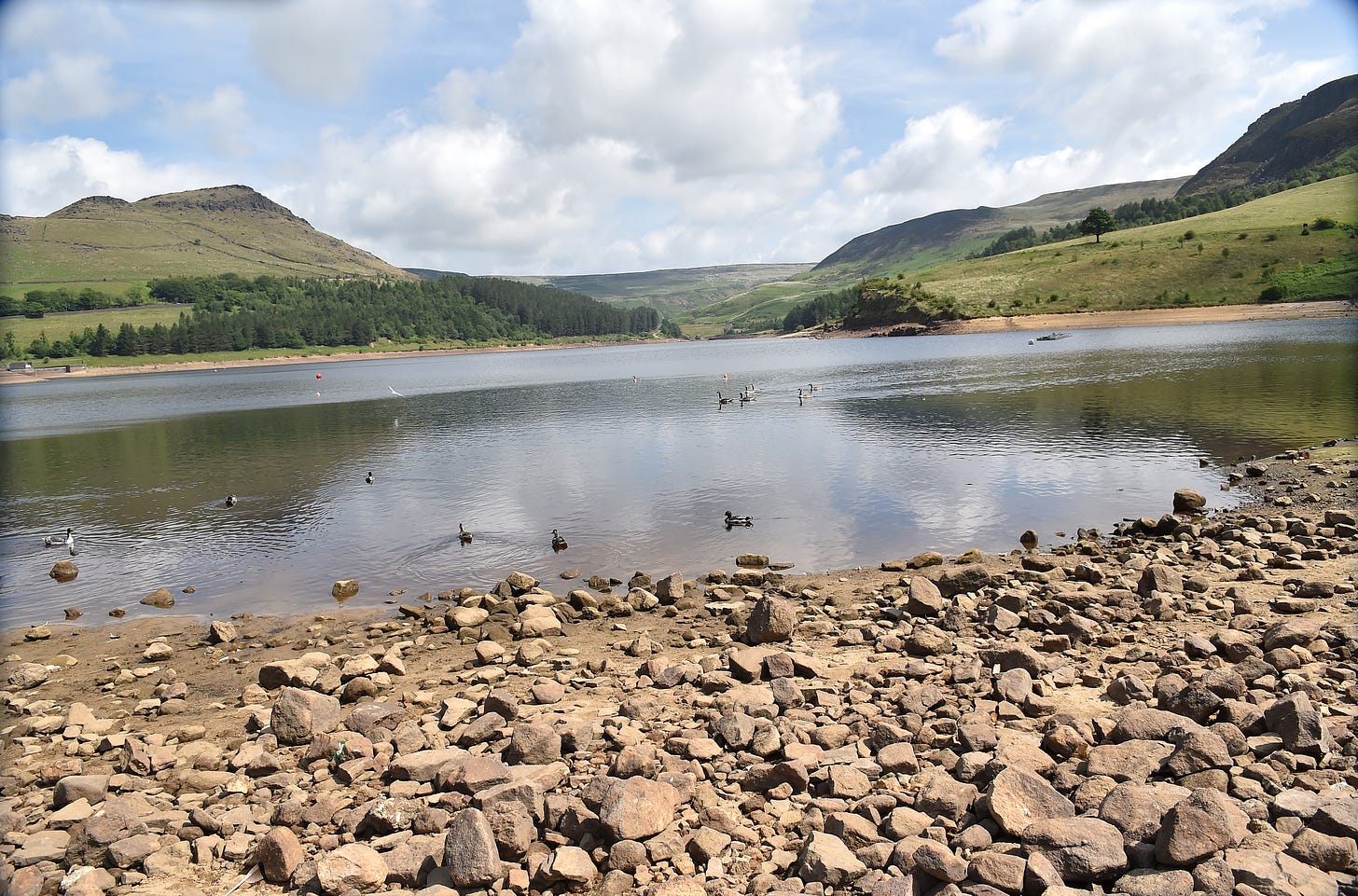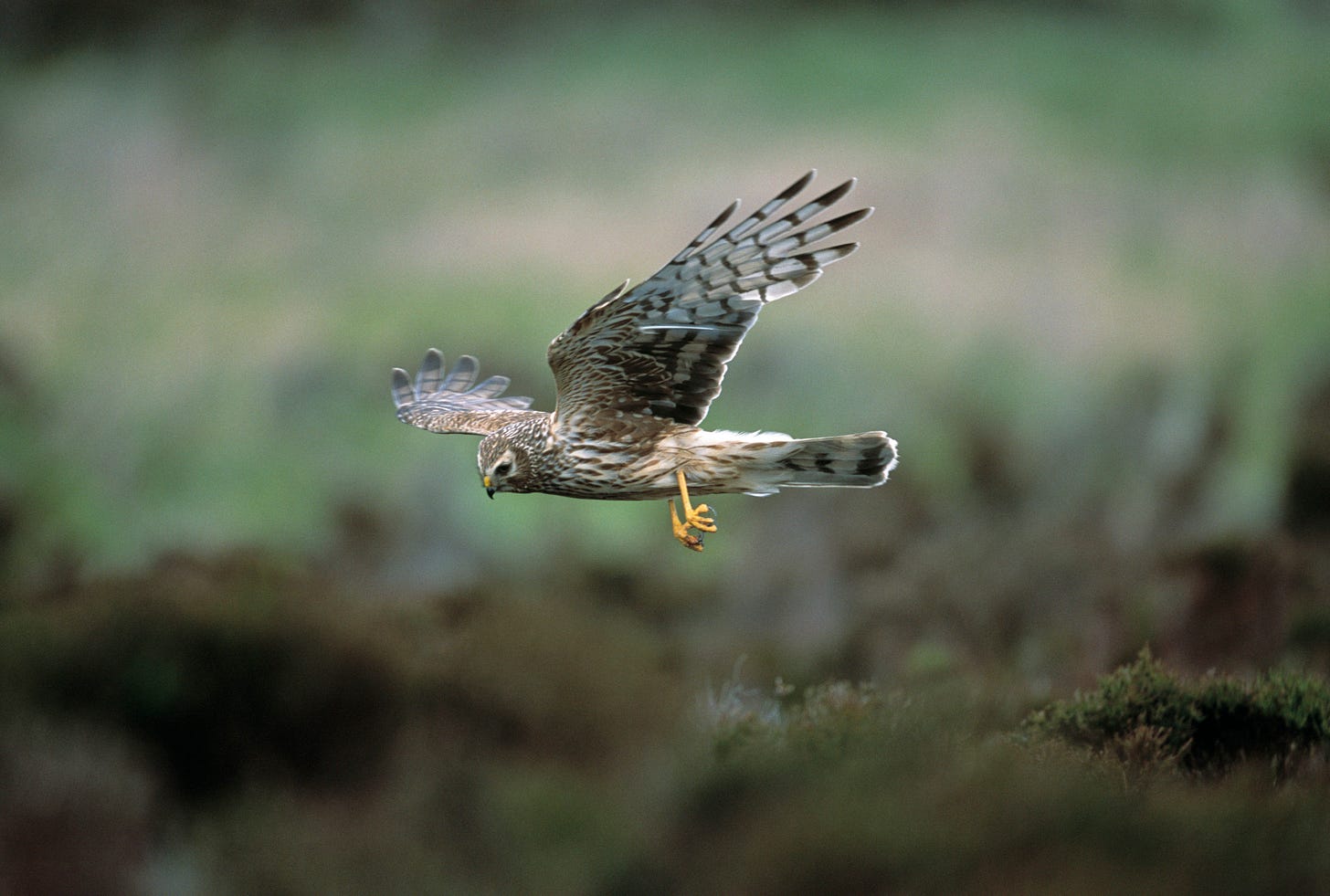Does Britain need to rethink its relationship with water?
Nada visits a reservoir in the Peak District National Park with worryingly low levels as the UK has just experienced its warmest and driest Spring in over 50 years.
Britain no longer has the luxury of behaving as if we are a wet country with an unlimited water supply, experts have warned.
The water crisis could lead to rationing, shortages and higher bills as demand will soon outstrip our supply.
They also warn that as the climate emergency triggers more and more heatwaves that in turn are helping to dry out our drinking supplies, wasting water should be as socially unacceptable as smoking near children.
This week the Environment Agency (EA) warned that England faces a five billion litre a day shortfall for public water supplies by 2055. A further one billion litres a day will also be needed to generate energy, grow food, and support emerging technologies.
But as the UK has just experienced its warmest, driest spring in over 50 years with drought already declared in the northwest of England and in Yorkshire, along with a heatwave this weekend, there are now concerns about managing water supply in the short term, as well as into the future.
The Rivers Trust is calling for a radical change in approach to water management to adapt to increased drought risk, including the widespread implementation of nature-based solutions for managing rainwater and more sustainable use among households and businesses.
Mark Lloyd, Chief Executive, said: “We no longer have the luxury of thinking and behaving as if we are a wet country with an unlimited supply of water – this is simply not the case. We must change how we manage our water or our green and pleasant land will become a distant memory.
“We need to start holding onto our water as a precious resource, turning our land and cities into sponges, recharging groundwater aquifers and slowing the flow instead of encouraging it to rush out to sea in straightened rivers and drains, taking pollutants and our vital soils with it. Water should be managed as close as possible to where it falls as rain and appreciated for the critical role it plays in our economy, ecosystems and to keep us alive.”
Reservoir levels in north-east and north-west England are at their lowest on record for this time of year, with some sites like Dovestone in the Peak District National Park which I visited this week - part of the Pennines group of reservoirs - down to 48%.
According to the EA, 60% of 5 billion litre a day deficit will be addressed by water companies managing customer demand – which is currently 140 litres per person per day compared to Denmark’s 110 - and dramatically reducing leaks. The remaining 40% would come from boosting supply including through the construction of new reservoirs and water transfer schemes.
But Mark Lloyd criticised the approach saying: “We cannot simply build and bulldoze our way to water resilience. Working with nature to manage water is key to reducing the ever-growing risks of both drought and flooding. Implementing nature-based measures such as ponds, wetlands, re-wiggled rivers connected to their floodplains and above all healthy soils at a landscape scale would help to protect vital water supplies and also reduce flood risk in winter deluges, boost biodiversity and secure food production.”
He added: “Embracing the natural function of rivers through nature-based solutions would go a long way towards a more climate-resilient future, but each and every one of us should also consider our personal water use. Anyone can help from the comfort of their home and garden by making a few simple lifestyle tweaks, whether that’s taking shorter showers, growing drought-resistant plants, swapping the hosepipe for a watering can, or installing a water butt. When it comes to being water wise, small adjustments make a big difference for people and rivers alike.”
As temperatures are set to soar this weekend, farmers are warning of a harvest on a ‘knife edge’ after the record breaking spring weather. It is a stark reminder of what lays around the corner for the UK as temperatures rise.
Environmental scientist Angela Terry, founder of One Home, said: “Drought is going to become more of an issue as we battle with the impact of climate change.
“We are already seeing reduced yields and crop failures, which could see food prices soar even more.
“We have got to get used to cutting back on water and using it more as a precious commodity.”
She also warned it could lead to bigger bills for customers as water resources become scarce.
So how did we get in this state?
After years of stealing water from nature, drained from rivers and lakes and then returned polluted, and as surface and groundwater levels dwindle year by year, the UK has been left in a perilous state.
This perfect storm has been amplified by a lack of investment in our ageing infrastructure
Old pipes leak wasting a trillion litres of water each year while no new reservoirs have been built in the last 30 years - yet the population has increased by 10 million.
There are 210 chalk streams in the world and 161 of them are in England including the Avon, Frome and Stour. But like other important ecosystems such as the Amazon rainforest and the Great Barrier reef, the chalk stream is also suffering from environmental threats – with two particular menaces causing most worry.
These rivers emerge from the chalk aquifer, so the very pure water is rich in minerals. But his asset means they have been drained of water by companies trying to meet the nation’s increasing thirst - something that many of us may be oblivious too.
As well as being pumped full of sewage, they are also drying out as temperatures rise.
They are vital for many species, including brown trout, and stretch across the south and east of the country. But also these rivers, together with the chalk aquifer from which they spring, are crucial water resources providing millions of people with water. The chalk aquifer alone makes up 70% of the public drinking water supply in the south-east of England.
Many of these streams are permanently dry and some are only 25% of normal flow rates.
WWF says all our chalk rivers are in varying degrees of health “but all under pressure”.
More than half of the freshwater abstracted from rivers and lakes in the UK is for household use.
But this system was designed more than 50 years ago when there was less demand for water and no awareness of climate change.
Dr Jess Neumann, associate professor in hydrology at the University of Reading, said: “The reality is, despite Britain's reputation as a rainy nation, water is no longer abundant, plentiful and reliable in the ways our ancestors came to expect. Already this year, large parts of the country are under drought measures as we fight the inevitable impacts of climate change, poor water management, and increasing demand.
“A shortfall of more than 5 billion litres of fresh water a day by 2055 is a terrifying amount. The impacts of that level of mismatch would be felt by everyone. It is important that we face up to this reality and take the necessary steps now to improve the situation.
“Without significant action, we would be facing a future where taps could run dry, water bills would soar, growing some crops would be more difficult, pushing up prices of domestically grown food. And there would be devastating impacts to our rivers and wildlife, if we continue to extract unsustainable levels of water from these vital and beautiful habitats.
“Action and huge investment is urgently needed. Changing the way we think about water and how we use it is essential. It must no longer be viewed as acceptable to waste fresh water - it is our most valuable and precious resource and this report highlights that without big change, it could run out fast.”
HOW TO REDUCE YOUR CONSUMPTION
On average, a shower uses a massive 10 litres of water every minute. Use a timer to reduce your usage.
Collect rainwater with a water butt: It’s actually better for your plants as it has a lower pH.
Just by turning off the tap when you brush your teeth, you save up to 48 cups of clean, drinkable water every time
Environment Round-Up
Over a million sign petition to ban fur imports
More than 1.5 million signatures calling for the UK to ban the import of fur from cruel farms were handed in to Downing Street yesterday, in a boost to the Mirror's campaign.
Labour's Ruth Jones delivered the petition to show Keir Starmer how much support there is for a new law.
The MP for Newport West and Islwyn urged our readers to lobby their MPs to attend Parliament when her legislative bill for a ban will have its second reading on June 13.
She said: "The UK is effectively offshoring poor welfare practices and contributing to animal suffering abroad. This must end.
"The pain and distress inflicted on animals on fur farms is difficult to fathom.
"Animals including foxes, mink and racoon dogs are kept in small cages, where they are unable to express normal patterns of behaviour for their entire lives.
"They are killed by gassing or anal electrocution. This is inhumane and unnecessary. The animals live and die in these torturous conditions solely so their skin can be used as luxury fashion items." No10's cat Larry was on the doorstep when the petition arrived.
TV star Pete Wicks added: "I've been to fur farms and seen the appalling suffering these poor animals go through for the sake of a fur bobble hat or jacket.
"When you look these animals in the eye, it's so obvious the fur industry is one of the worst cruelties humans inflict on animals in the name of fashion and vanity. We need to get this ban done."
Hen harriers missing from nature reserve
Two rare male hen harriers have suddenly disappeared from RSPB Geltsdale Nature Reserve in Cumbria.
The charity said it is "sickened by the losses", as both birds - a protected species - were in attendance at their nests until vanishing and it is strongly suspected they have been killed illegally.
Staff are now providing food to the female at one of the nests in a desperate attempt to save their chicks. RSPB chief executive Beccy Speight said: "If these magnificent birds are ever going to have a sustainable population in England, this killing has to stop. We need the immediate introduction of a licensing system for grouse shooting, so estates proven by the police and Natural England to be linked to raptor persecution would simply lose their licence to operate."
A new way forward for protein
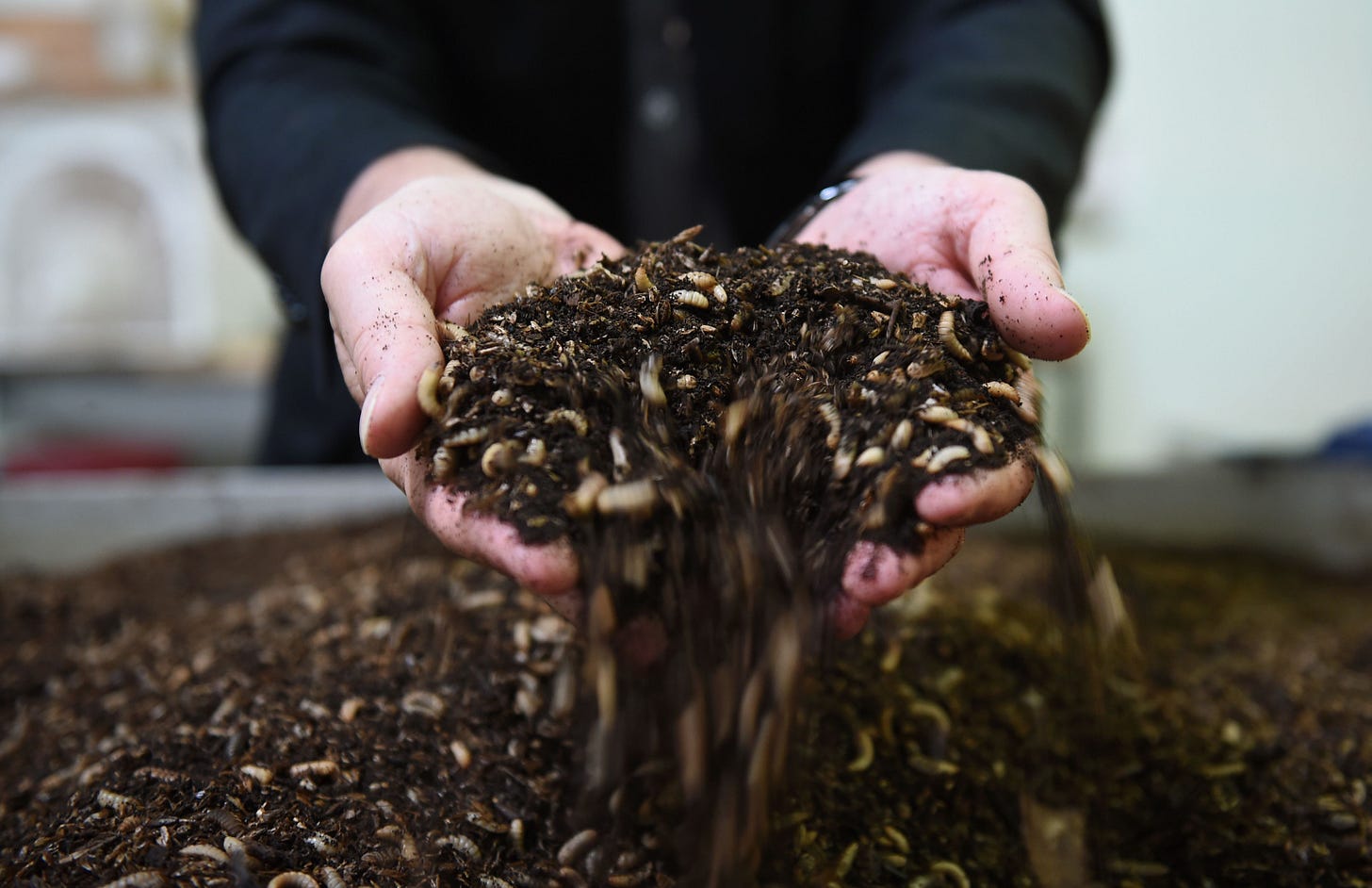
Humans are on track to annually farm and kill nearly six trillion animals by 2033, a near-quadrupling from 2023. Research group Rethink Priorities say insect farming is to grow rapidly, with black soldier fly larvae and mealworms projected to surpass shrimp as the most farmed animal group
Some content in this newsletter may contain affiliate links. We may receive a commission on any sales we generate from them. Learn more.
Something to be hopeful about
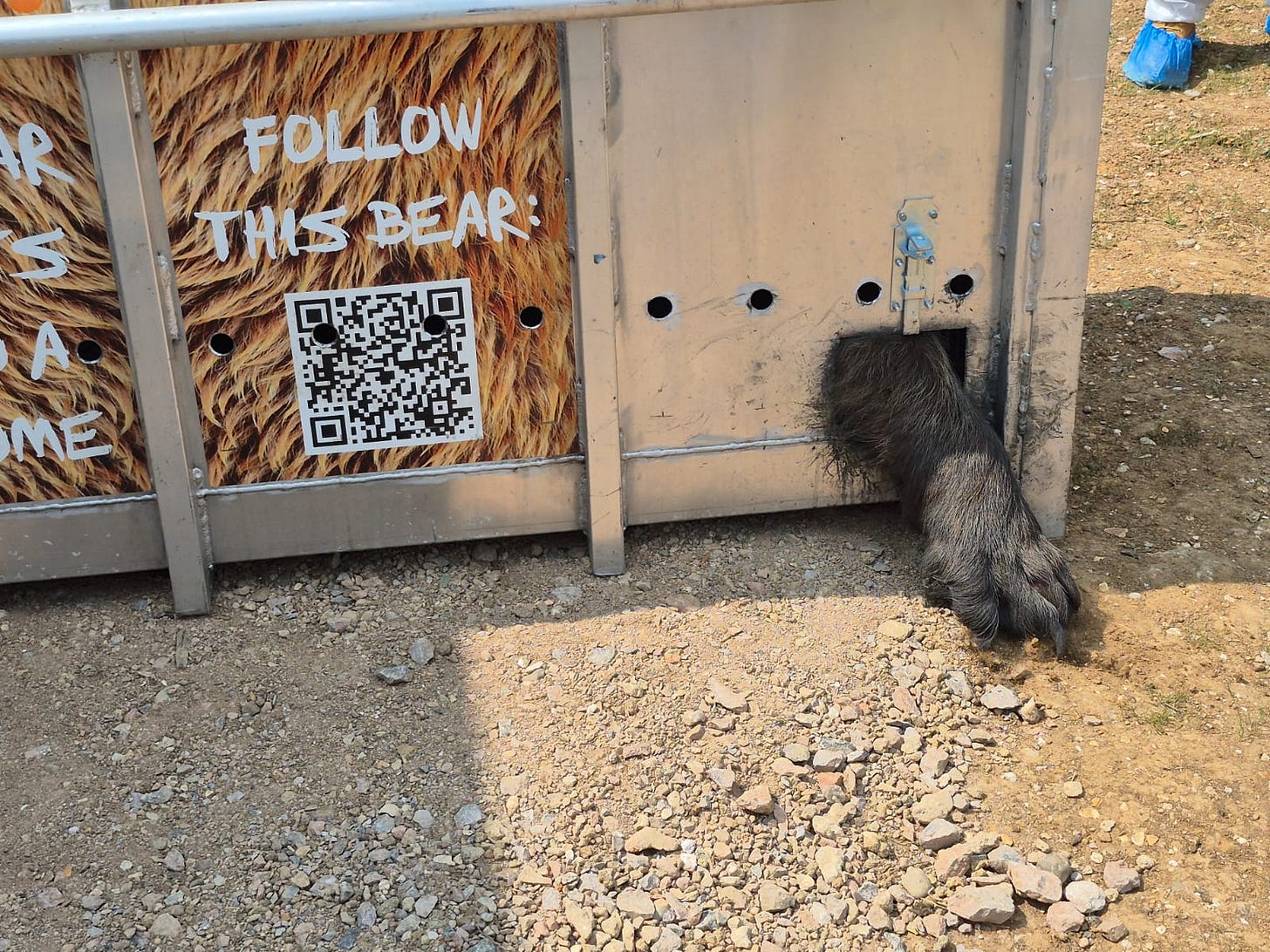
Brother bears Benji and Balu were caught as cubs and forced to live a life of misery in a tiny, barren and concrete cage on the side of a restaurant in Azerbaijan.
Bored, hungry and suffering from serious injuries, the pair were kept there as nothing more than a novelty to attract customers in the Altiagac region - never walking on grass or hibernating as they would in the wild.
But thanks to the incredible generosity of the residents of the Isle of Wight, the European brown bears will now be able to live out their days in a 3,500 square metre enclosure at the Wildheart Animal Sanctuary in Sandown.
This new home is in stark contrast to the depressing existence they used to have, living off scraps of food and whatever else customers threw their way. As a result, the bears, understood to be around 13-years-old, were malnourished, with severe damage to their teeth from stress-induced bar-biting.
Last month they completed their 3,000-mile journey which included a flight from Baku to Glasgow in specially-made crates before a drive south then a ferry from Portsmouth Harbour to the Isle of Wight.
Lawrence Bate, Wildheart's COO, called it an iconic moment in the sanctuary's history. "The first bears to the Island in over 30 years, and one of the most urgent and ambitious rescues we have ever undertaken.
"Bears are such characterful and intelligent animals, and as such, their suffering seems all the more poignant.
Thank you
I hope you’ve enjoyed my latest newsletter.
By supporting this newsletter you are helping to fund environmental investigative journalism, vital in this time of a climate emergency.
Thanks for reading.
If you have been forwarded this email and would like to sign up, you can do that right here.
Please let me know what you think and the issues you want to be investigated.
Until next week,
Nada
Contact us: You can get in touch via email - earthwatch@mirror.co.uk - or via my Twitter page.
Or let me know what you think in the comments below.


